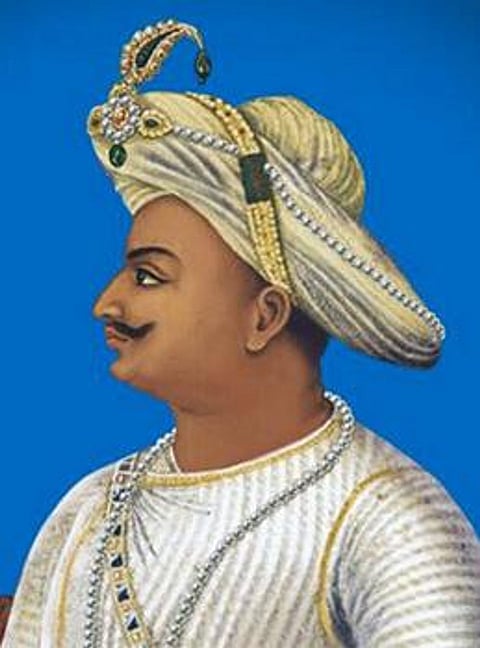The Shocking Truth About Tipu’s Gifts To Hindu Temples
Tipu Sultan was also known as the Tiger of Mysore, ruler of the Kingdom of Mysore based in South India. He was born on 20 November 1750 at Devanahalli, in a Muslim family.
People have so much to say about Tipu Sultan whenever the topic arises. There are different people holding different stories and views on Tipu Sultan. Among other things, one of the arguments put forth to whitewash Tipu Sultan's religious bigotry and well-documented record of atrocities against Hindus is- the "fact" of Tipu donating gifts to the Sringeri Shankaracharya Mutt. The correspondence between him and the then Shankaracharya to the effect is still preserved by the Mutt.
Follow NewsGram on Twitter to stay updated about the World news.
The Author SANDEEP BALAKRISHNA who is the Founder and Chief Editor at the Dharma Dispatch shared an excerpt from his own book titled Tipu Sultan: The Tyrant of Mysore highlighting the point of argument.
The Excerpt is if Aurangzeb was the most fanatical Muslim king who reigned on the Mughal throne in Delhi at the start of the 18th century, his counterpart who matched him in both bigotry and cruelty in South India at the close of the same century was Tipu Sultan.
Aurangzeb inflicted untold atrocities on Hindus, their way of life, their traditions, and their places of worship over a long period of 50 years. However, when we recall that Tipu inflicted the same – if not greater – kind of barbarism on Hindus in just 17 years, we realize the breadth and depth of his religious zealotry. Aurangzeb had almost all of India as the playground for his fanatical cruelty. However, Tipu held sway over large parts of Karnataka, a few regions in Kerala, Tamil Nadu, and Andhra Pradesh. Within this comparatively small area, he managed to foist every kind of brutality imaginable in such a short span of time. His atrocities were not limited to the lives of Hindus – it was all-pervasive; it targeted their traditions, places of worship, society, and women.
Tipu Sultan is also known as Tiger of Mysore. Pinterest
After which The British historian Lewis Rice who wrote the History of Mysore and Coorg says
"…vast empire of Tipu Sultan on the eve of his death, there were only two Hindu temples having daily pujas within the Srirangapattanam fortress. It is only for the satisfaction of the Brahmin astrologers who used to study his horoscope that Tipu Sultan had spared those two temples. The entire wealth of every Hindu temple was confiscated before 1790 itself mainly to make up for the revenue loss due to total prohibition in the country."
"Mussulmans were exempted from paying the house tax and taxes on grain and other goods meant for their personal use and not for trade. Christians were seized and deported to the capital, and their property confiscated. Converts to Islam were given concessions such as exemption from taxes…[Tipu] removed Hindus from all administrative posts and replaced them with Mussulmans with the exception of Diwan Purnaiah…Another change was the introduction of Persian as the medium of accounts in the revenue department. It was so far the practice in Mysore…to make out the revenue accounts in Kannada, fair copies of which were communicated to the amildars who had them translated into Marathi."


